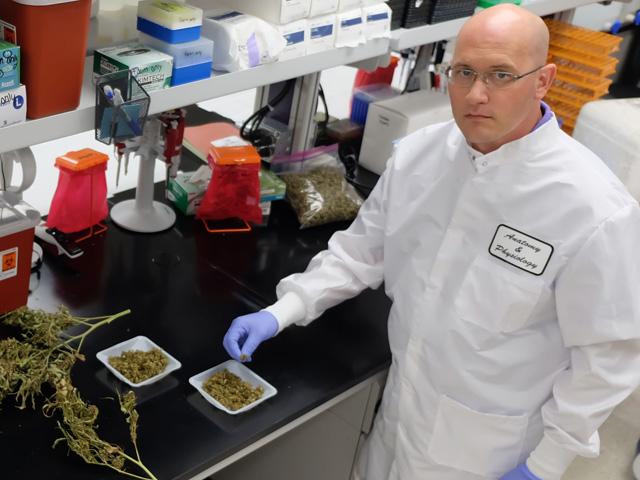Feeding Hemp
New Study Shows Feeding Industrial Hemp Relaxes Cattle
Feeding cattle industrial hemp may be a future solution for times of stress. A new study from Kansas State University (KSU) researcher Michael Kleinhenz looks at some of the positive effects the management strategy could have.
The benefits Kleinhenz reported after feeding cattle industrial hemp came largely in the areas of stress reduction, with the researcher noting that data shows cannabinoids fed via industrial hemp decreased the stress hormone cortisol and inflammatory biomarkers in cattle.
P[L1] D[0x0] M[300x250] OOP[F] ADUNIT[] T[]
"Hemp may be a natural way to decrease stress and inflammation related to production practices such as transportation and weaning," he said.
Feeding hemp also seems to increase the amount of time cattle lie down when they ruminate and produce saliva, according to the report.
The KSU researchers found that repeated daily doses of high cannabidiolic acid (CBDA) via feeding hemp did not result in an accumulation of cannabinoids in the blood.
"If hemp is to be utilized as an ingredient in the ration of cattle, it is prudent to know and understand the pharmacokinetics and potential biological effects of cattle exposed to repeated doses of cannabinoids present in industrial hemp," Kleinhenz said.
"The initial data we have collected is essential should industrial hemp and its byproducts be considered by the U.S. Food and Drug Administration and the Association of American Feed Control Officials."
He added that further work is needed to determine if the cannabinoids can effectively alter stress response in cattle at key times, like transportation and weaning.
Funding for the research came through a grant from the Agriculture and Food Research Initiative of the USDA's National Institute of Food and Agriculture.
(c) Copyright 2022 DTN, LLC. All rights reserved.





